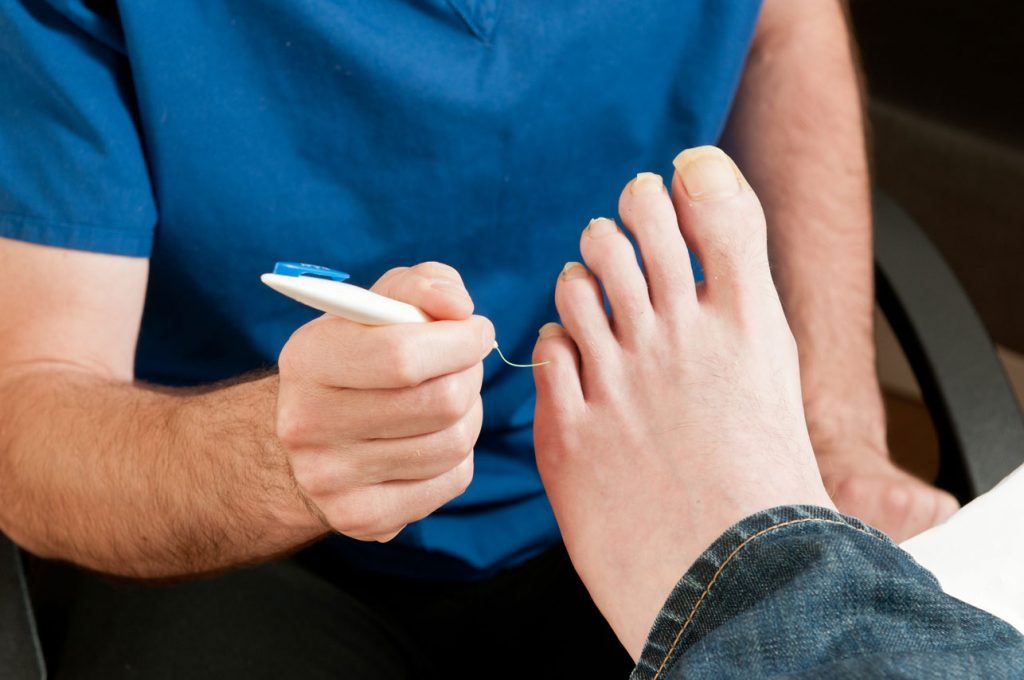No products in the cart.
Podiatry
It is time for your Diabetic Foot Health Check
It’s time for your diabetic foot health check!
Summer is fast approaching, which means plenty of time outdoors and on your feet! If you’re living with diabetes, this means it’s a great time to get your diabetic foot health check so you can stay safe and minimize your risks this summer. Because the consequences of diabetes on the feet progressively worsen, it’s important to check your feet annually. But what are the risks to your feet in diabetes and why is a foot check so important? Footcare Specialist Podiatry answers these two common questions about your feet.
- What risks does diabetes pose to your feet?
There are two primary ways that diabetes has a significant impact on your feet: through sensation and circulation. Sensation is affected by the damage to the nerves as a consequence of diabetes. This is called peripheral neuropathy. Because our nerves are responsible for relaying accurate sensory information to our brain, damage to the nerves alters and impairs our sensation. Common changes in sensation include:
- Numbness
- Tingling
- Pins and needles
These unusual sensations reduce our ability to feel, meaning that if we step on an object, instead of feeling it immediately, we may not detect it until we’re standing directly over it and exerting a large amount of pressure. This can be dangerous as if the object is sharp, it may pierce our skin and pose a risk for infection.
Other changes in sensation include becoming unable to detect whether an object is hot or cold, or whether it is sharp or dull. These leave you vulnerable to burns and cuts, among other consequences.
The most dangerous of these changes in sensation is completely losing the ability to feel. This renders any object or surface that our feet come in contact with undetectable, leaving our feet vulnerable to damage without us even realising. If we can’t feel that something is wrong, we don’t know that we need to treat it and any wounds are left open to infection.
Circulation is affected by the impact of diabetes on the vessels responsible for circulating blood effectively throughout our body. The feet are already disadvantaged when it comes to circulation as they are situated at the longest distance away from our heart, where the oxygen and nutrient-rich blood is pumped away from.
Impaired blood flow to the feet means that the tissue repair and healing processes occur slower and infections are cleared at a slower rate. Slower healing leaves the body susceptible to infection and secondary infection for longer periods, and makes it more difficult for the body to clear these infection. This is why wounds often turn into ulcers for individuals with diabetes, and why these ulcers are slow-healing and difficult to treat.
At it’s worst, amputation may be the only option. Diabetes is currently the leading cause of lower-limb amputations aside from accidents and trauma.
- Why is a foot health check so important?
Knowing the effect of diabetes on your feet, foot health checks become vital for you to be aware of the current status of your feet when it comes to your sensation and circulation. They also mean that you regularly have a professional check on your feet and legs to exclude any warning signs or anything you may have missed.
During our diabetic foot health checks, we test your sensation and circulation with regards to your feet and from the outcome, are able to provide you with the best, timely advice on what you should be looking out for and what your current risks are. We compose a management plan and track your changes over time. We treat and address any issues that arise, such as cuts, wounds and ulcers. Additionally, with such high stakes involved, there is always a peace of mind in knowing your feet are being professionally cared for and that you’re in good hands.
To book a diabetic foot health check for yourself or any of your family, give us a call on 09 214 9585 or email us on sarah@aucklandpodiatryclinic.co.nz
Our expert, friendly team specialise in providing excellent podiatric care for the whole family!
